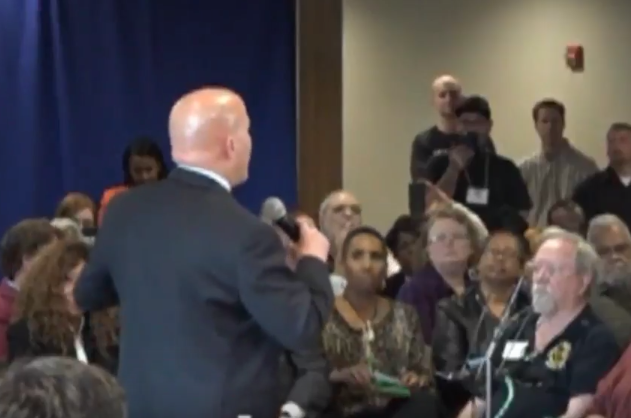
TRENTON, N.J. — Special interest groups like the New Jersey Chamber of Commerce have been unusual patsies for the Democrat Party in recent cycles, but at least now the head of the Chamber’s top mouthpiece is admitting it.
“The Tax Policy Center report confirms what many of us warned when the federal tax reform legislation was being debated – that New Jersey citizens will bear an unfair and disproportionate share of tax increases and that this measure will make our state less competitive. All but one of our congressional representatives understood these issues and voted against the federal tax legislation in a clear and bipartisan voice,” said N.J. Chamber President Tom “Gas Tax” Bracken, referring to MacArthur.
“If stating the facts and fighting for New Jersey, as we did in opposing the federal tax legislation, constitutes a ‘smear campaign’ and being misguided, as suggested by Rep. MacArthur’s spokesperson in this nj.com article, then sign me up,” he added.
Bracken’s definition of what’s a “fact” — and what’s spin — is up for debate.
According to the cited report, approximately 2/3 of the state will receive some relief; almost 61.5% of tax units will see $2,740 in savings while about 10% will see an increase. A slightly higher percentage would receive a benefit (nearly 69%) if the SALT deduction hadn’t been capped at $10,000.00.
The report also ignored indirect tax benefits including a strong economy, job market, and improved worker benefits (e.g. just today, McDonald’s cited the new tax law to TRIPLE “the amount of money some workers can get each year to help pay for college or trade school tuition.“
So a bill which helps 2/3 of the state directly, and thousands more indirectly, is worthy of… derision?
Is New Jersey really being slighted?
Or is New Jersey continuing to handicap itself?
Nowhere in the Chamber’s statement does Bracken call for New Jersey Democrats, who control New Jersey government without opposition, to tackle the state’s affordability crisis and unreasonable SALT burden which if addressed, in addition to impacting state tax burdens directly, would help New Jersey benefit more fully from federal tax reform.
The statement also fails to call on Governor Murphy to push for the removal of New Jersey’s own $10,000 cap.
_


